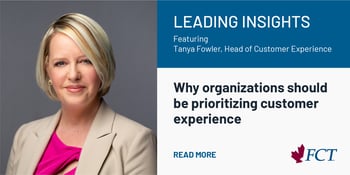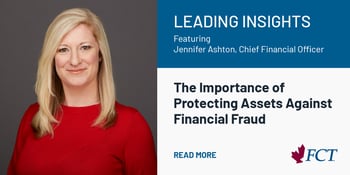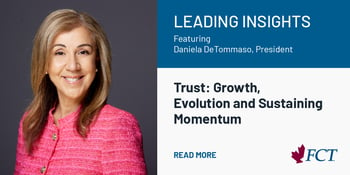
Although many real estate professionals engage in customer service to some degree, few are as fully focused on it as mortgage brokers. Often an early part of the property buying process, the job of a broker is equal parts advisor, advocate, and administrator. It’s a deliberate decision to look for someone who can empathise with their situation, and provide them with multiple options to suit their needs, especially in a digital world, where they can find information at their fingertips.
The mortgage process can be quite daunting so having a trusted professional to help navigate its pitfalls and complications has immense value. As a broker, that trust is your greatest asset. Cultivating and maintaining it goes hand-in-hand with everything you do. By considering the various frustrations and pain-points your clients face, you can ensure you’re providing them with the best experience possible.
Let your expertise calm your clients’ concerns.
The mortgage process can be overwhelming. Both new and experienced buyers may be nervous about the entire process, especially with their hard-earned money at stake. There’s important information they need to know, and a fine line for you to tread between being informative and overloading them with details. You’ll need to exercise superior discretion in giving them a frank assessment of their options without disheartening them.
Allow your clients to set the pace at which they commit to a mortgage, and support them once they do.
Putting their finances up for scrutiny can be intimidating for your clients, added to their (likely existing) concerns about qualification for a certain mortgage. You’re looking out for their best interests, of course, which means arming with them the knowledge they need to make an informed decision. Allowing them to initiate the process on their own timeline will go a long way towards establishing their confidence in your commitment to them.
Help your clients navigate the mortgage process with forthrightness and transparency.
Your clients may feel like they’re stuck in a financial maze. After all, to non-professionals the processes and paperwork for securing a mortgage can seem like a lot. Fear of making the wrong choice and being stuck in a bad situation is understandable. Good mortgage brokers alleviate a lot of that fear by being transparent about all aspects, costs, and conflicts of interest (should there be any). Clients that know exactly what they’re paying for (and how you’re being compensated) will appreciate your candor, and respect you for being straight with them.
Become a trusted advisor to you clients beyond their mortgage.
You can add a lot of value to your role as broker by helping direct your clients to others who can help them throughout the home buying process. A referral from a trusted individual carries a lot of weight, and also enhances your own credibility when it proves fruitful. Your clients will likely have to find multiple professionals that they trust–from lawyers to realtors–and having a network of individuals you can refer them to (if they need it) can save them a lot of stress. It also shows that you’re thinking about their wellbeing beyond the scope of just what you do.
Be attentive to their specific circumstances.
Being an attentive and responsive mortgage broker sounds deceptively obvious. However, seasoned professionals know that it takes particular skill to really absorb your clients’ concerns and questions, and respond to them in a way that makes them feel valued but not pressured. Effective follow-ups can be time-consuming, but are always worthwhile if done conscientiously. Using technology to your advantage and making use of mortgage broker software will help you stay efficient so you have more time to spend on your clients. They will appreciate that you’ve taken the time to tailor your advice to their specific circumstances and concerns.
It’s very likely that many of you already follow these tips, after all, it’s part and parcel of being a great mortgage broker. Even so, it’s worthwhile to remember how the best practices you engage in make a difference to your clients. You’re expected to provide good advice, but great service is what builds the value of your brand.


































-min-1.jpg?width=350&height=216&name=home-theft-tile-fraud-toronto-blog%20(3)-min-1.jpg)

-min.jpg?width=350&height=216&name=FCT-Leading-Insights-Michael-LeBlanc-ENG_blog%20(1)-min.jpg)






-min.jpg?width=350&height=216&name=errors-and-omissions-ontario-real-estate-law-risk-blog%20(1)-min.jpg)



















-min.jpg?width=350&height=216&name=Three-signs-your-clients...-Blog%20(1)-min.jpg)













.jpg?width=350&height=216&name=Blog-Post-EasyFund-2-Steps-min%20(1).jpg)





-min.jpg?width=350&height=216&name=June-28th-Were-so-Canadian2%20(1)-min.jpg)









